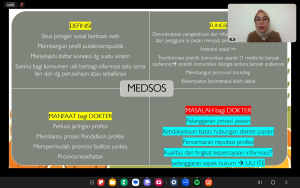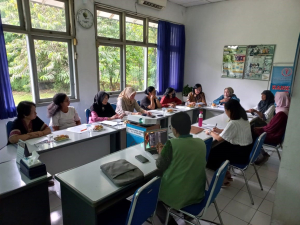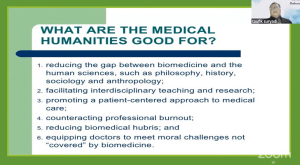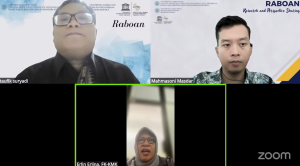Health Communication and Ethical Challenges: Building a Responsible Dialogue
Yogyakarta, March 19, 2025 — The Center for Bioethics and Medical Humanities (CBMH) at Universitas Gadjah Mada once again hosted its regular Raboan Sharing & Perspective Sharing session, a weekly discussion exploring various bioethics issues. This event, held online via Zoom, featured dr. Steffi Rifasa, M.H., a lecturer and Head of the Division of Bioethics and Law at the Faculty of Medicine, Universitas Islam Pasundan, as the keynote speaker, with Nathan Agwin Khenda, Ftr., M.Bio.Et., serving as the moderator.
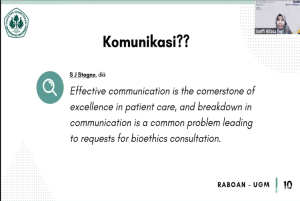
On this occasion, Raboan explored the theme ‘Health Communication and Ethical Challenges: Building a Responsible Dialogue.’ The discussion emphasized the critical role of bioethics in health communication while examining various solutions for addressing medical ethical dilemmas that require effective communication between healthcare professionals and patients. The session began with an analysis of alleged malpractice cases involving medical personnel, illustrating how perspectives can differ between patients and healthcare institutions. Furthermore, it underscored that clear and transparent communication is essential in preventing misunderstandings between medical professionals and patients, which can significantly impact medical decision-making.
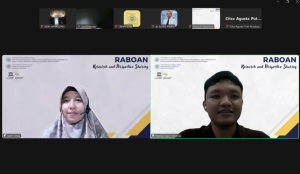
Moderated by Nathan Agwin Khenda, the discussion was highly interactive, engaging participants from diverse backgrounds, including medical professionals, academics, and students. Various perspectives on bioethics and communication crises were explored in depth, particularly regarding the application of bioethical principles and the role of healthcare professionals in building patient trust through effective and responsible communication.
Steffi Rifasa, M.H., also highlighted the challenges in health communication, particularly in delivering bad news without diminishing patients’ hope. She emphasized the importance of using appropriate methods, such as the SPIKES approach (Setting, Perception, Invitation, Knowledge, Empathy, and Strategy), to ensure that difficult conversations are conducted ethically and responsibly. Additionally, she addressed the growing challenges in digital health communication, where the rise of telemedicine and the widespread use of social media as an information source—often lacking accuracy—necessitate a more proactive role for healthcare professionals in providing accurate health education.
These ethical and communication challenges are closely linked to the Sustainable Development Goals (SDGs), particularly SDG 3: Good Health and Well-Being, which underscores the importance of effective health communication in ensuring quality healthcare and appropriate patient treatment. Furthermore, SDG 4: Quality Education highlights the need for healthcare professionals to receive proper training in ethical and empathetic communication to enhance patient interactions.
This Raboan discussion reaffirmed that effective communication in healthcare not only helps patients better understand their conditions but also strengthens the relationship between healthcare providers and patients. An ethical approach in health communication is essential, ensuring that information is conveyed in a way that fosters a deeper understanding for both patients and their families.
Reporter : Nadia Ulfah, Mafrida Nabilah Hanan
Editor : Alvira Rahmasari, S.H.G.

